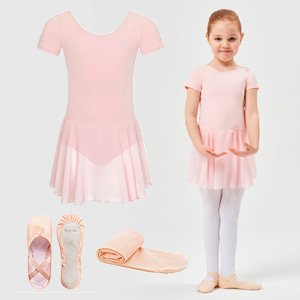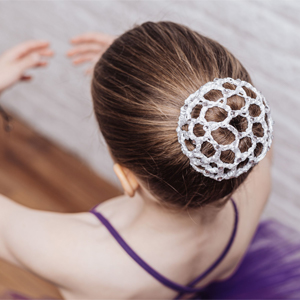When it comes to ballet, opinions are divided... Some consider it too strict and void of fun, others consider it the best way to teach a child routine and discipline. In fact, both can be the case! Different teachers and schools use their own methods and approaches. That's why it's always important to take a close look at the lessons and choose the proper training.
 We think: ballet can and should be fun. It can also contribute not only to the development of discipline but to a whole range of other great attributes of growing up. In any case, ballet training significantly contributes to young dancers' physical and mental development.p>
We think: ballet can and should be fun. It can also contribute not only to the development of discipline but to a whole range of other great attributes of growing up. In any case, ballet training significantly contributes to young dancers' physical and mental development.p>
Parents play a crucial role in understanding their children's needs and wishes. Open communication and supporting the child in pursuing their passion are essential. At the same time, it's important to have realistic expectations and to understand that not every talented child automatically has to become a professional dancer.
Move & Groove: Motor skills
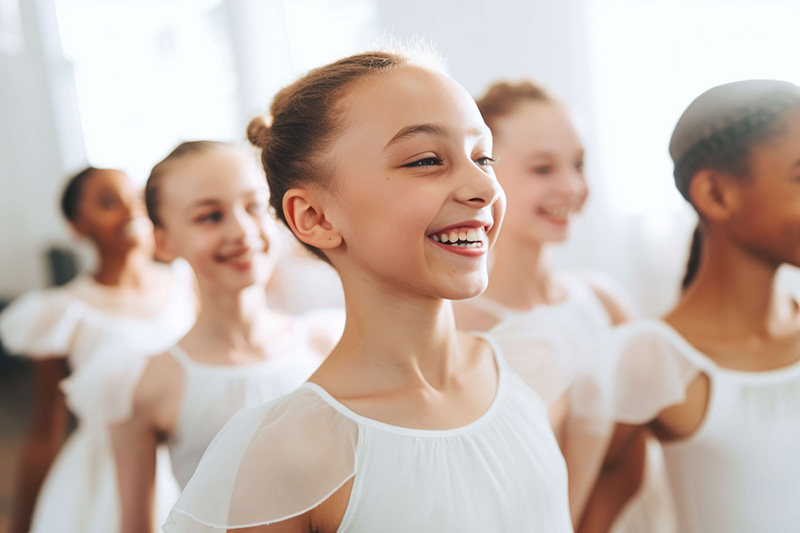 If your child's interest and talent in dance is particularly strong, you, as a parent, will have to decide whether your offspring should pursue a professional ballet career.
If your child's interest and talent in dance is particularly strong, you, as a parent, will have to decide whether your offspring should pursue a professional ballet career.
In children's ballet, choreographies are rehearsed, and basic motor skills are trained. Precise movements and body positions promote coordination, cognitive perception, a sense of balance, and flexibility. These skills are useful not only for ballet but also for countless other activities in a child's life. A well-trained motor repertoire is the basis for balanced development.
More difficult than it looks! Posture and muscle building
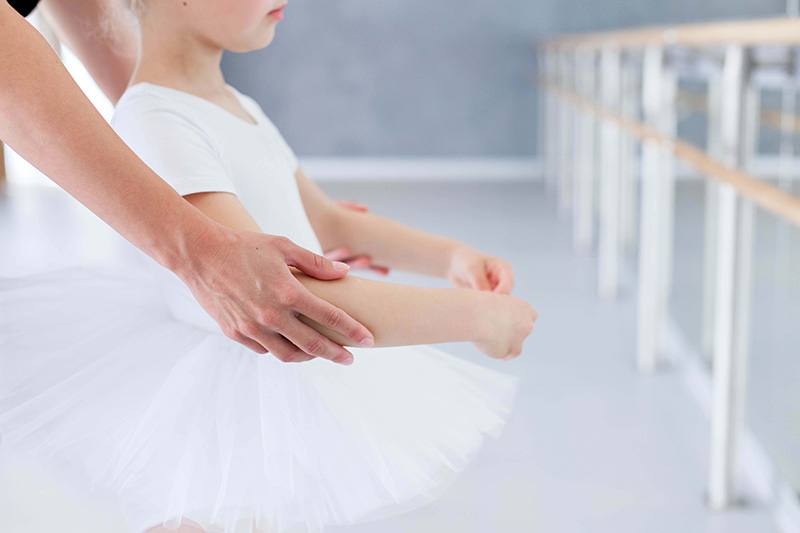 Even though ballet tends to become more diverse, a career in dance can create a lot of pressure. Strict body images and a disciplined lifestyle are daily companions — they require great self-confidence and healthy self-esteem. Teenagers, in particular, want to break rules, try out new things, and spend time with friends. However, if a professional career is pursued, spending time at a boarding school is not unusual. Many things that are great fun at a young age are only possible to a limited extent in this setting.
Even though ballet tends to become more diverse, a career in dance can create a lot of pressure. Strict body images and a disciplined lifestyle are daily companions — they require great self-confidence and healthy self-esteem. Teenagers, in particular, want to break rules, try out new things, and spend time with friends. However, if a professional career is pursued, spending time at a boarding school is not unusual. Many things that are great fun at a young age are only possible to a limited extent in this setting.
Ballet places great emphasis on correct posture. This is incredibly important for the growing body, especially in a time of constant use of computers, tablets, and cell phone screens. Ballet looks so simple, but it's incredibly efficient, hard muscle training. The regular execution of ballet movements and the use of small and large muscle groups strengthen the body — and contribute directly to upright posture. Aesthetically pleasing — and can even prevent back problems caused by poor posture. Ballet inevitably develops a fundamental awareness of one's own body. The rule is always: don't overdo it and always stretch well (before and after training) to avoid injuries.
The rule of discipline = chocolate
 Even though ballet tends to become more diverse, a career in dance can create a lot of pressure. Strict body images and a disciplined lifestyle are daily companions — they require great self-confidence and healthy self-esteem. Teenagers, in particular, want to break rules, try out new things, and spend time with friends. However, if a professional career is pursued, spending time at a boarding school is not unusual. Many things that are great fun at a young age are only possible to a limited extent in this setting.p>
Even though ballet tends to become more diverse, a career in dance can create a lot of pressure. Strict body images and a disciplined lifestyle are daily companions — they require great self-confidence and healthy self-esteem. Teenagers, in particular, want to break rules, try out new things, and spend time with friends. However, if a professional career is pursued, spending time at a boarding school is not unusual. Many things that are great fun at a young age are only possible to a limited extent in this setting.p>
Discipline is like... chocolate!? Yes! Tolerable in moderation, but too much of it will give you a stomach ache. The healthy structure of a ballet lesson always promotes physical and mental discipline. In ballet, children train their ability to concentrate and execute their movements with precision. Such self-control is extremely helpful on stage, in the ballet studio, and in everyday life. Being disciplined and focused in the world allows children with resilience to overcome challenges and create an organized everyday life.
Spotlight on! Concentration and attention
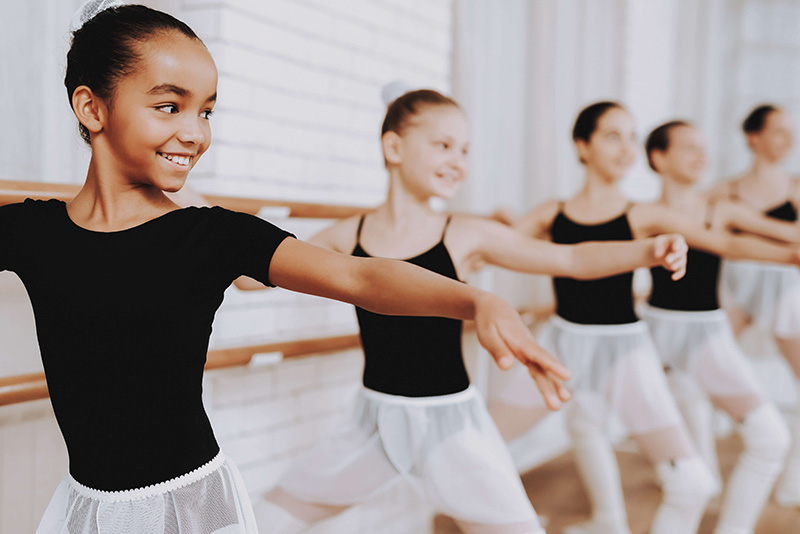 That's why dance lessons promote physical development and strengthen self-confidence per se; provided your child enjoys dancing and the group and teacher are well selected. Whether your child pursues ballet as a hobby or a profession, it's important that the focus is on enjoying it. The beauty of dancing lies not only in the striving for perfection but also in personal growth, self-development, and the expression of one's individuality. This should always be a priority.
That's why dance lessons promote physical development and strengthen self-confidence per se; provided your child enjoys dancing and the group and teacher are well selected. Whether your child pursues ballet as a hobby or a profession, it's important that the focus is on enjoying it. The beauty of dancing lies not only in the striving for perfection but also in personal growth, self-development, and the expression of one's individuality. This should always be a priority.
A ballet lesson can be pretty long for a child. Even though ballet lessons for children are usually very playful, they require and train concentration and attention for around 60 minutes. Children learn to focus on complex movement sequences and center their thoughts. With so many stimuli and influences—a child's imagination, other children in the room, and an environment outside of their own home—this is not always easy. The ability to create focus is a superpower for your entire life.
Superheroes and fantasy creatures: Creativity and self-expression
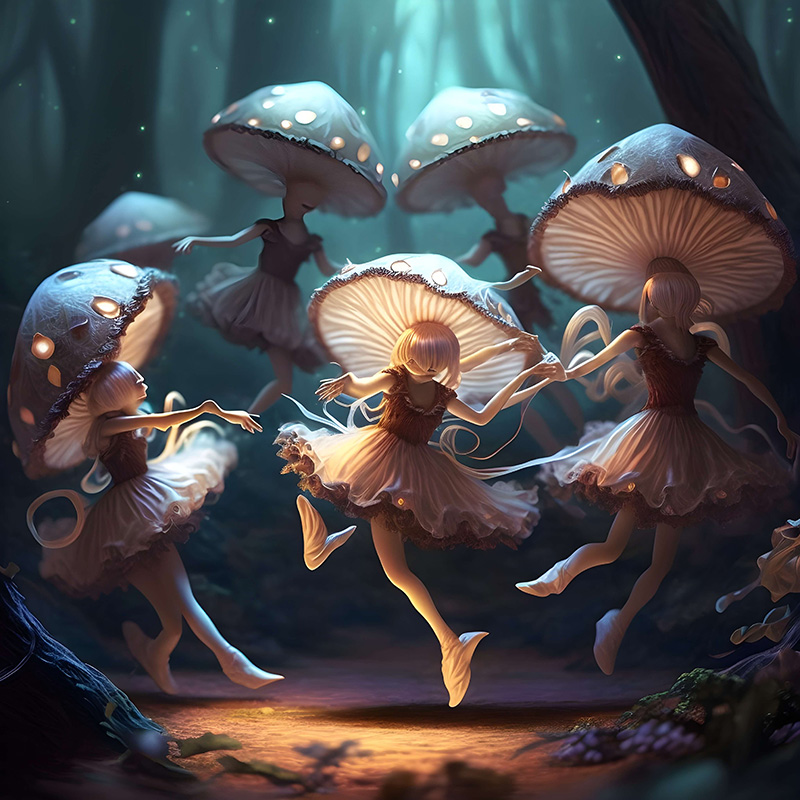 That's why dance lessons promote physical development and strengthen self-confidence per se, provided your child enjoys dancing and the group and teacher are well selected. Whether your child pursues ballet as a hobby or a profession, it's important that the focus is on enjoying it. The beauty of dancing lies not only in the striving for perfection but also in personal growth, self-development, and in the expression of one's individuality. This should always be a priority.
That's why dance lessons promote physical development and strengthen self-confidence per se, provided your child enjoys dancing and the group and teacher are well selected. Whether your child pursues ballet as a hobby or a profession, it's important that the focus is on enjoying it. The beauty of dancing lies not only in the striving for perfection but also in personal growth, self-development, and in the expression of one's individuality. This should always be a priority.
Ballet is technique and art at the same time. Children's ballet offers a fantastic space for self-expression. Young dancers learn to express their emotions and imagination through movement — and to develop their own artistic personality. This promotes the ability to work creatively and teaches how to express feelings in a positive and constructive way.
Team up! Social skills
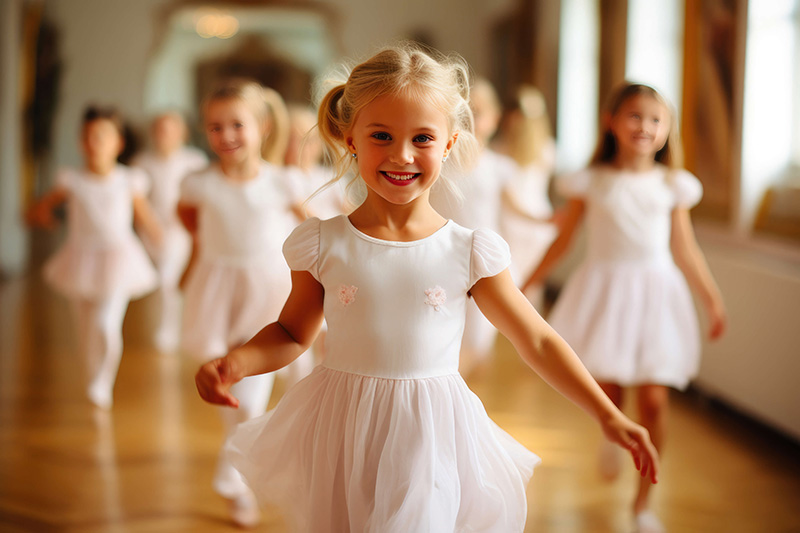 That's why dance lessons promote physical development and strengthen self-confidence per se, provided your child enjoys dancing and the group and teacher are well selected. Whether your child pursues ballet as a hobby or a profession, it's important that the focus is on enjoying it. The beauty of dancing lies not only in the striving for perfection but also in personal growth, self-development, and in the expression of one's individuality. This should always be a priority.
That's why dance lessons promote physical development and strengthen self-confidence per se, provided your child enjoys dancing and the group and teacher are well selected. Whether your child pursues ballet as a hobby or a profession, it's important that the focus is on enjoying it. The beauty of dancing lies not only in the striving for perfection but also in personal growth, self-development, and in the expression of one's individuality. This should always be a priority.
Ballet lessons promote social interaction and social skills enormously. Children interact both with teachers and other children within the dance group. Teamwork and social interaction can be encouraged in a fun way. The ability to act in a group, compromise, and listen to others are important social skills children develop by dancing together.
More than just steps to music...
 That's why dance lessons promote physical development and strengthen self-confidence per se, provided your child enjoys dancing and the group and teacher are well selected. Whether your child pursues ballet as a hobby or a profession, it's important that the focus is on enjoying it. The beauty of dancing lies not only in the striving for perfection but also in personal growth, self-development, and the expression of one's individuality. This should always be a priority.
That's why dance lessons promote physical development and strengthen self-confidence per se, provided your child enjoys dancing and the group and teacher are well selected. Whether your child pursues ballet as a hobby or a profession, it's important that the focus is on enjoying it. The beauty of dancing lies not only in the striving for perfection but also in personal growth, self-development, and the expression of one's individuality. This should always be a priority.
So, for children, ballet is much more than just learning dance steps. Dance is a holistic experience that supports and promotes young people's physical and mental development on various levels. From the development of motor skills to the development of discipline, creativity, and social skills, children's ballet contributes to holistic growth and well-being in a variety of ways. Letting a child dive into the world of dance means giving them essential tools for self-development, both physically and emotionally.









